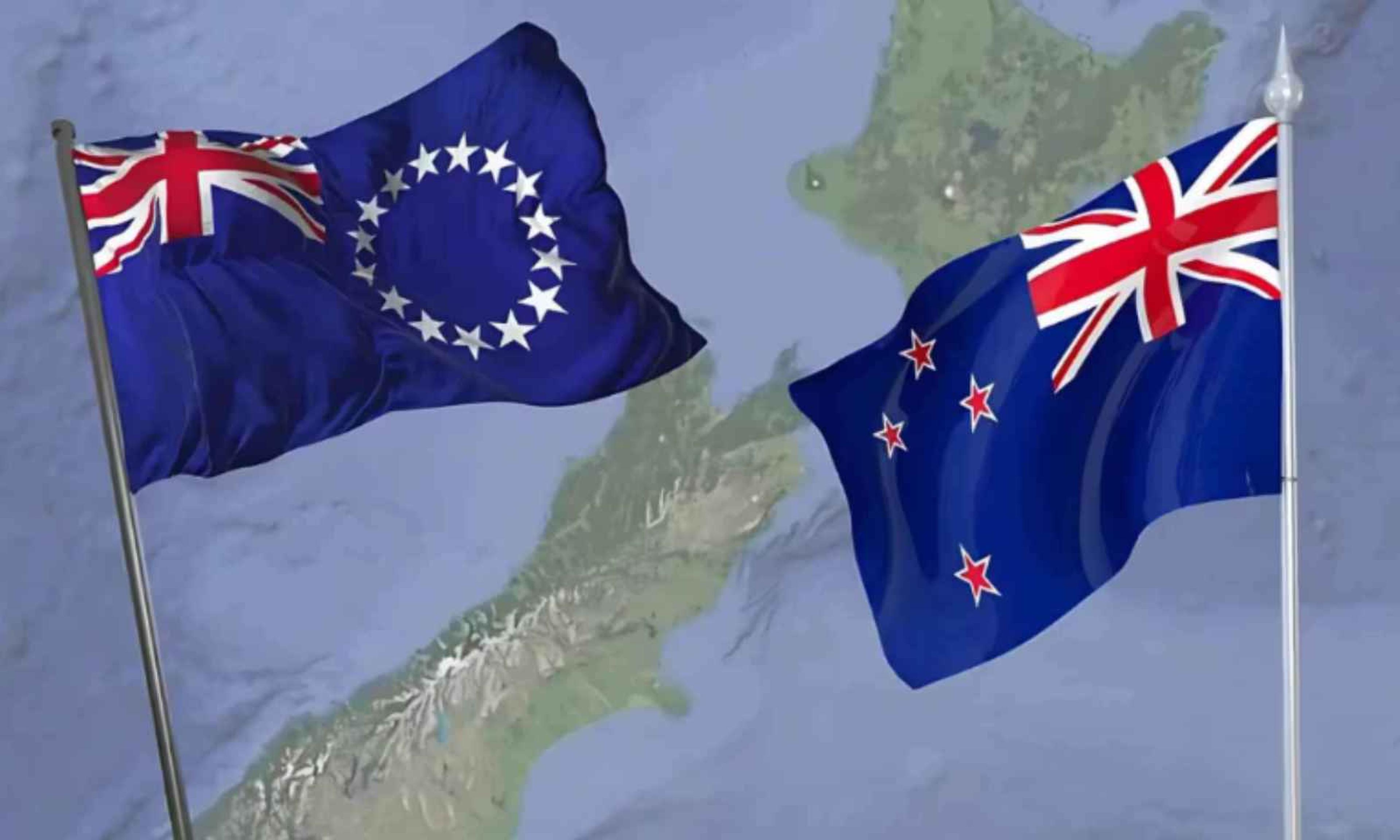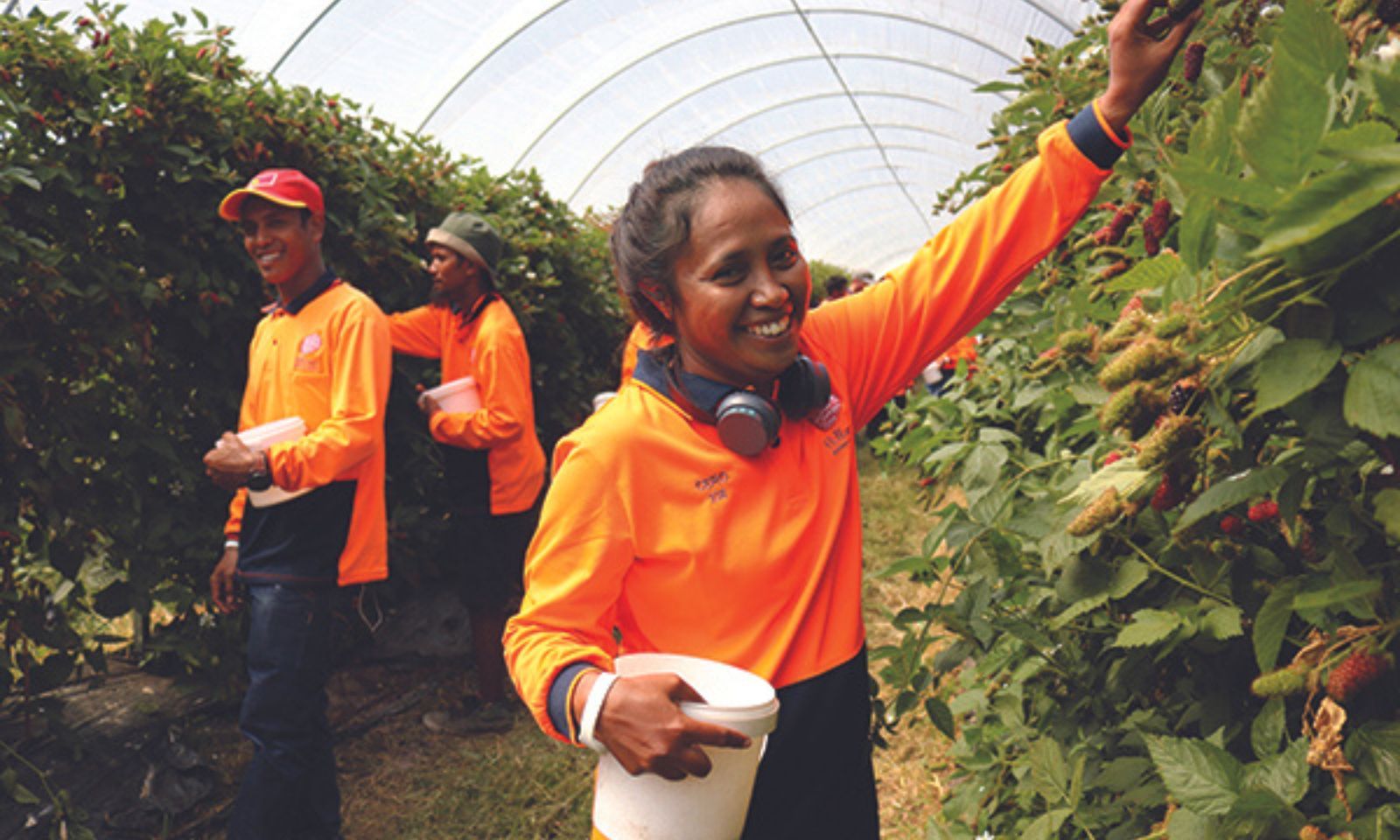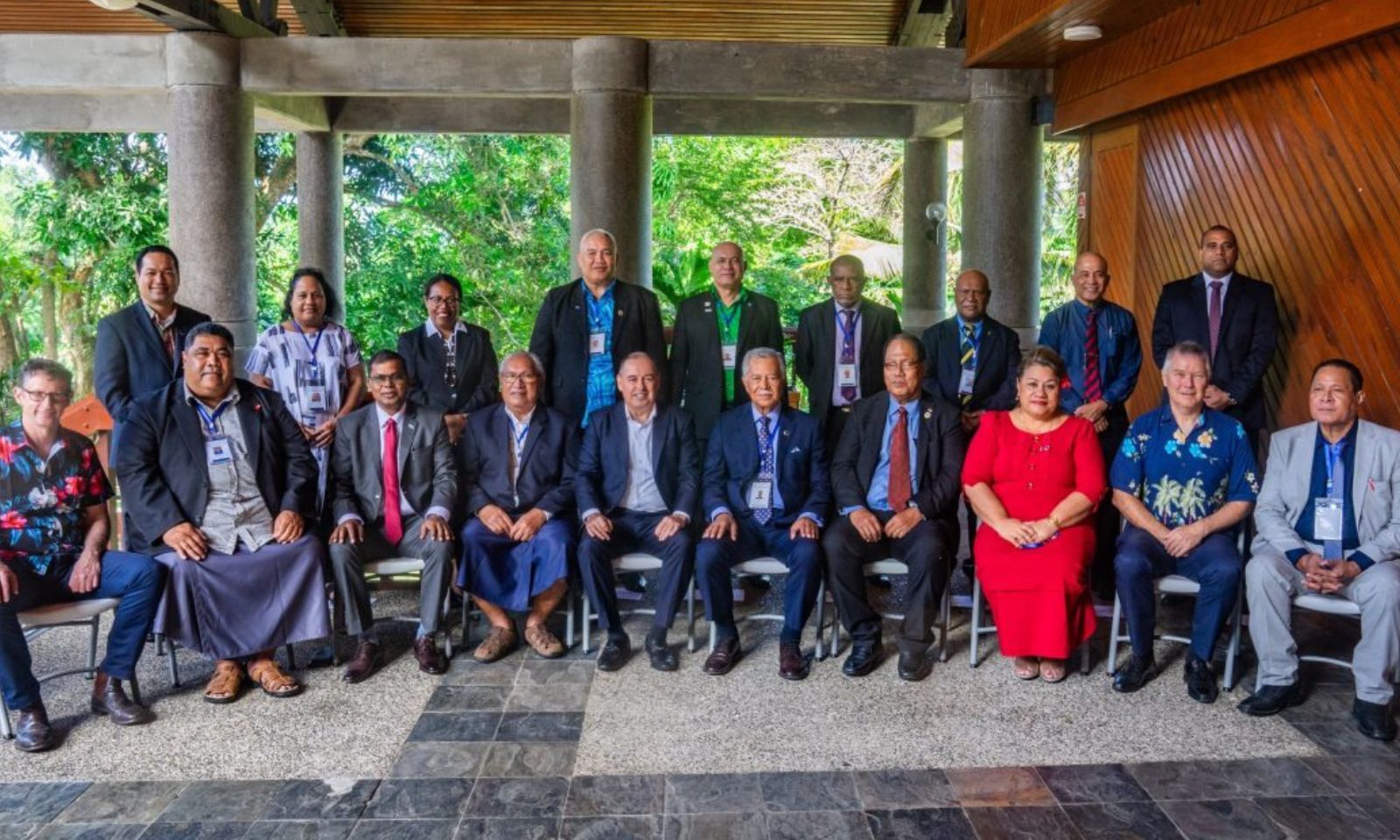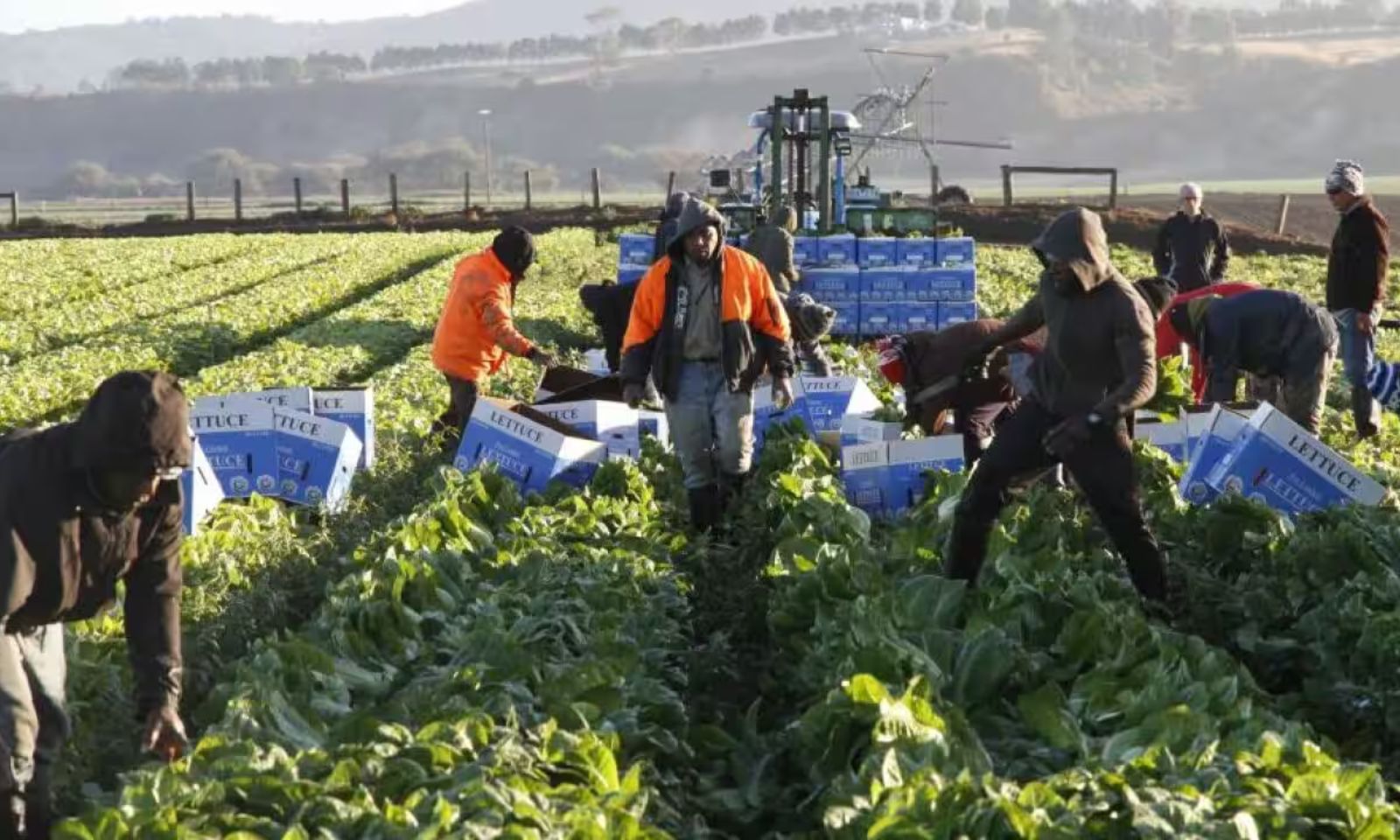

ANU researchers Natasha Turia from Papua New Guinea and Akka Rimon of Kiribati say the PEV preferentially favours the more populous countries such as Papua New Guinea and Timor-Leste.
Photos/supplied
All you need to know about Australia's Pacific Engagement Visa
From 3 June, 3000 people can register for the secret ballot online. Pacific researchers Natasha Turia and Akka Rimon look at the winners and losers.


Cook Islands projects still delayed as NZ funding suspension continues over tensions


Pacific leaders demand fair backing as Moana Pasifika cancels Tonga Super Rugby match

Immigration grants visa to injured NZ-born toddler after review

Cook Islands projects still delayed as NZ funding suspension continues over tensions


Pacific leaders demand fair backing as Moana Pasifika cancels Tonga Super Rugby match
Australia’s highly competitive new visa lottery has much leg work to do to ensure fair allocations between 12 Pacific island nations, researchers say.
Up to 3000 visas will be made available annually to Pacific and Timor-Leste nationals through an online ballot process that opens on 3 June.
But Natasha Turia and Akka Rimon, of the Australian National University, said the absence of a Pacific-led framework to guide fair allocation between the countries was a "misstep" for Australia in its ambition to support Pacific families and migration opportunities to achieve a more peaceful, stable and prosperous region.
Watch the interview of Pacific scholars at ANU, Natasha Turia from Papua New Guinea and Akka Rimon of Kiribati below.
The new visa category, successfully legislated in Australia's Parliament in October, allows skilled workers and their families to apply for permanent residence online.
Pat Conroy, Australia’s Minister for the Pacific, said the visa aimed to build greater people, cultural, business, and educational links between Australia and the Pacific.
He's hoping the pathway to residency programme deepens Australia's connections with countries across the Pacific and Timor-Leste.
So far, 1350 places have been given to Papua New Guinea, 300 each to Fiji and Timor Leste, 150 each to Vanuatu, Solomon Islands, and Tonga, 100 each to Nauru and Tuvalu, and 50 each to the Federated States of Micronesia and Palau. The remaining 300 are expected to go to Samoa, the Marshall Islands and Kiribati.
Conroy said countries were invited to participate based on their priorities, and Samoa, the Marshalls, and Kiribati were still considering their participation.
But Turia and Rimon said a lack of access to the internet and financial distress would hurt those who need the visa most.
"The presence of countries in Northern Micronesia having better access to the US and Australia is quite negligible," Rimon from Kiribati said.
"It'll be interesting to monitor how much of the quota they use because I'm not sure that Australia is a popular destination for these countries to begin with.
"With PNG taking almost half the slice of the quotas, maybe it deserves a separate pathway to get into Australia, and the rest can be left to the Pacific Island participating countries," she said.

300 Timor Leste nationals can register for Australia's Pacific Engagement Visa. Photo/DFAT
Turia from PNG said in terms of accessibility, to the internet and having a credit card, it was going to be harder for the smaller nations to meet their quota.
"I think there will be a redrawing from the ballot until certain countries can meet that quota. For Papua New Guinea, with 1350 places, it's very hard for anybody to have a passport.
"In terms of the eligibility checklist, many people won't be able to apply yet until they've got a passport to register.
"If you talk about people in Fiji that have 300 allocated to them, I suspect that Fiji will be the first one where the registrations will be closed for their citizens simply because they've got better access to the information, internet, as well as purchasing online.
"Compared to other countries, I suspect we're going to find a longer registration process and a redrawing for other countries who've got higher quotas."
Rimon said the visa was monumental, "a diplomacy tool to deepen Australia's people links and its economic relations with its Pacific family.
“The visa was introduced by the Albanese government in 2022 and late last year, it was passed as a legislation and now known as the subclass 192 Pacific engagement visa.
“It’s modelled on the US Green Card and the New Zealand Pacific Access Category Scheme in that it is administered through an open ballot process and eligible participating countries are each given a quota.”
Rimon said the biggest winner was “obviously PNG” because it made sense that the largest Pacific island nation had low access to Australia.

During the Pacific Islands Forum Economic Ministers Meeting in Fiji last August, the PEV was simply ticked off with a welcome. Photo/PIFS
But she said whether PNG’s share was comparable to its population was questionable.
“It’s also a win for the elites as they are a better placed to apply online and to afford migration generally, whereas for the others, the mere act of applying and paying for passports is difficult.
“Like Kiribati, the internet is extremely expensive so that's another obstacle. Our islands are scattered over a vast ocean space - that poses the question of accessibility because people on the mainland have better connectivity to those applying from the outer islands.
“The losers for me are the low mobility countries like Nauru, Tuvalu and Kiribati, who have a relatively smaller diaspora in Australia.”
Rimon said the idea of the Pacific engagement visa was to establish a pathway to support these low mobility countries and grow their diaspora.
She said their diaspora in Australia was not only insignificant, but they were also countries most affected by climate change.
“I was really looking forward to having some form of economic adaptation pathway for these countries.
“In our research, we took a great interest in the allocation system. We kept a close monitor on the visa and suggested the use of the Pacific Mobility Index as indicators of climate vulnerability, diaspora size, and social well-being as proxies for ranking these countries and allocating the quotas equitably.
“We made a submission to Parliament last year.”
There is no closing date, but Turia is not surprised because “we haven't actually completed the final allocation of the visas.

Up to 3000 people in the Pacific can aplly for the PEV annually. Photo/DFAT
“After we've allocated the remaining 300 visas, we might get an announcement about a closing date.”
For those interested in applying, you must be aged between 18 and 45, a holder of a valid passport from one of the participating countries, and either born or have a parent from that participating country.
“Then you need to determine whether you have access to the internet because it is an online ballot process. You need a reliable email address because you need to be able to monitor the progress of your registration. And of course you need a credit card to be able to pay the online registration fee, which is 25 Australian dollars. That would be 25, 27 dollars, New Zealand dollars. PNG, it would be 63 Kina or in Fiji, $37.
“You don't need to secure a job offer at the time of registering. You just need to register once you've met the eligibility criteria. Once your name is selected through the ballot, you don't need to show a formal job offer at that point. You'll be given like eight months really to prove that you have a job offer.”
Turia said the Australian government would be establishing specific engagement visa support services in each of their participating countries.
She said this would support information sharing about the application process, the registration visa and job placement support.
“If you can't secure a job in the first eight months, then they’ll give it to the next most eligible candidate and then you can always reapply next year if you didn't make it this round because it's an annual ballot.”
With only four countries participating in New Zealand’s Pacific Access Category, Turia said she would like to see more island nations involved.
“It’s called a PAC and you've only got four participating countries, which doesn't really represent the Pacific, right? So if you're going to be calling a permanent migration intervention Pacific access category, then I would expect to see representation from all the other Pacific Island countries.
“The population of New Zealand is a lot smaller than Australia so managing the inflow of migration is gonna put a strain on the New Zealand economy as well.”